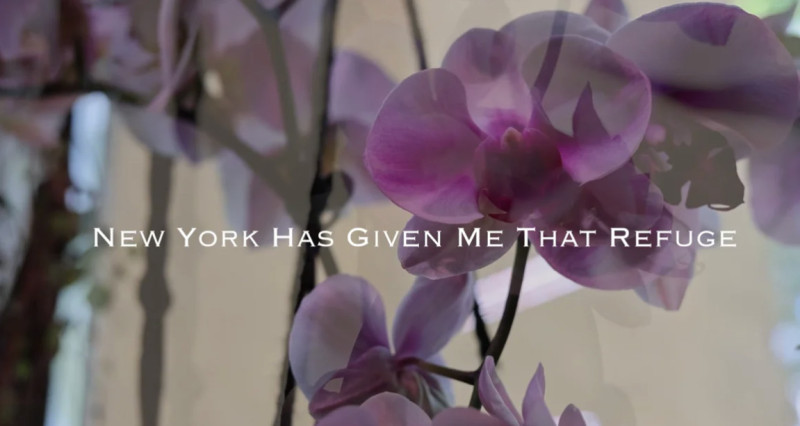
New York has given me that Refuge
In this film, refugee South Asian LGBTQ+ activist Barbara Khan talks about her migration from Pakistan and her life in New York as a trans woman.
We were lucky to come to the United States, we lived in the luxury hotels, while other people lived on military bases. In the first days, HIAS 11HIAS (founded as the Hebrew Immigrant Aid Society) is a Jewish American nonprofit organization that provides humanitarian aid and assistance to refugees. It was originally established in 1881 to aid Jewish refugees. organization, that takes care of refugees, provided a one-bedroom apartment for us. I spent almost a week there. Later Prof. Kerry and Columbia University started negotiations and provided me with an accommodation here. Now I am living in the Columbia residential area, which is a nice apartment. I am now in my apartment; two beds apartment and I am living in the Bronx. So now I am feeling very well… But the refugees status is not so comfortable, everyone gets uncomfortable, even depressed, anxious. This is something, that we also have, but we are going to adjust and to adapt ourselves to the new life here in New York.
How else did HIAS help you? You came with your family. Is everyone already able to speak English, or do your family members take the language courses? What about your wife, is she working? Are your children going to school? Do you have support in that regard also?
Maybe our level of expectation is so much higher… HIAS helped with application for employment, authorization documents, social security. They organized a first health check-up…. They also contributed to enrollment for my 2 sons to schools. But one school is not very good structured. I again received support from the University of Columbia… They enrolled my son (he is 18) in a private school. I am not paying for that school. To go to the private school is very difficult here, even for New Yorkers, and they are not that affordable. So, that is some kind of the support I have received from the University of Columbia. In addition to the HIAS organization, they also found jobs for my two elder sons that is not convenient to their skills. They started to work at restaurants. One of my sons is not happy, so he left that work… I enrolled my sons for public library English courses, now they are happy, but I am recommending them to find an English special course like IELS as the second language…If they would want to go to the college or to the University, they will need to be professionals in English language, otherwise they cannot. So, this is a capacity building and capacity developing. So, most of the support I received from the Columbia University.
New York is a big business city, it’s very crowded with a lot of noise. My apartment is near to the expressway. I have soundproof windows, and it is very well apartment… My neighborhood is very good organized and structured area, but there are some parts of Bronx, that I don’t like. I have heard about some conflicts here. To the question, if New York will be my future home – it depends on my business. If I will have employment here, I will stay here. At least I will stay in New Jersey. I don’t have any choice or preference. If I feel that my family will not adjust or adapt here, we could probably go to California, we have relatives and people, that we know there. So, the future is unknown. But I hope that we will stay here to establish our own business, particularly for my sons.
Abdul S. – name changed, former associate professor of epidemiology at Kabul University of Medical Science, is the first Afghan scholar to accept a position at Columbia University under the “Columbia University Scholarship for Displaced Students” initiative. He is a medical doctor and graduated from Kabul University of Medical Sciences in 1990. Since the 1990s, he worked in a hospital where he witnessed the war firsthand on a daily basis. As the situation in Afghanistan worsened, he was transferred to one of the provinces to work as a general surgeon in a local hospital. He returned to Kabul in 2001. In 2003, Abdul co-founded the “National AIDS Control Program.” At that time, he switched from medicine to the field of public health. After completing a master’s degree in public health in Ireland, Abdul joined Johns Hopkins University in Baltimore, USA, in 2010 as a project director. When the project was discontinued in 2013, he returned to Kabul University of Medical Sciences as a professor in the Department of Public Health. During the period from 2016 to 2018, he was the Dean of the Faculty of Public Health. With the Taliban coming to power on August 15, 2021, he and his family found themselves in acute danger from one moment to the next. His cooperation with international organizations and American universities could now be his undoing, so he made the decision to flee to the United States with American university support.
The interview was conducted by the We Refugees Archive Team in the spring of 2022.